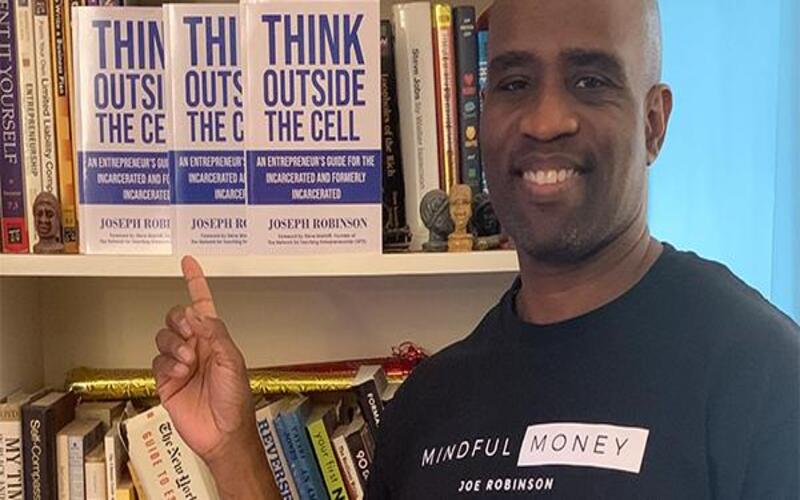Joe Robinson, an author and businessman, has just released a revamped and extended edition of his critically praised book, Think Outside the Cell. Robinson’s goal is to continue his mission of educating those whom the criminal justice system has harmed. When it was initially published, this motivational and educational book pioneered entrepreneurship manuals expressly developed for those who had previously spent time in jail. Including the revolutionary information from the original book and valuable new data and ideas, the most recent version provides a wealth of assistance that will make the route to entrepreneurship, financial literacy, and personal empowerment far simpler and more likely to be successful.
Joe is pushing men and women around the country to take advantage of what many people consider to be inherent entrepreneurial abilities to construct the life they want and break the cycle of recidivism through his initiative known as Think Outside the Cell. This step-by-step guide is packed with straightforward information on a variety of topics, such as how to get other people to embrace your ideas and help launch your business, how to avoid taxes legally, how to establish good credit, and the steps to take to remove occupational restrictions that many states place on convicted felons. Utilizing a customer avatar to zero in on your ideal customer’s aspirations and pain points, making the most of the internet for business, and utilizing social media to establish deeper relationships with both existing and potential customers are some of the topics that are covered in the recently released edition, which contains a wealth of new information.
There is a strong connection between Joe’s life experiences and his love for his cause. He hails from East New York Brooklyn, which was the region most severely impacted by the terrible effects of the crack era during his formative years. He was born and raised in this neighborhood. His exposure to the harsh reality of economic imbalance and the repercussions of financial illiteracy can be attributed to the unstable atmosphere in which he found himself. It also helped him become more resilient.
An event that kindled a great desire to reach out to individuals who find themselves in similar circumstances, contending with a plethora of barriers and challenges following release, was the 25 years of incarceration that he endured. This experience had a tremendous impact on his path. Joe’s unyielding dedication to enhancing the economic well-being of this particular portion of the population is the driving force behind his unrelenting efforts to normalize talk about money.
Joe’s objective is not confined to teaching simple financial principles; instead, it is about assisting individuals in embracing their ambitions by fostering a significant transformation in their mentality around money, cultivating healthy relationships with money, and offering the skills and information necessary to invest intelligently.
Think Outside the Cell has featured the late John C. Whitehead, who held the positions of U.S. Deputy Secretary of State and co-chairman of Goldman Sachs, Steve Mariotti, founder of the highly regarded Network for Teaching Entrepreneurship, Wahida Clark, author of urban fiction with millions of copies sold, Julio Medina, founder of Exodus Transitional Community, and others.
Amid renewed attempts to assist formerly jailed individuals, who are disproportionately black and Latino, in successfully reentering society, the publication of Think Outside the Cell brings about this development. As an illustration, the Clean Slate Act recently passed into law in New York, automatically expunges certain convictions once a predetermined amount of time has passed. People who have been jailed in the dozen or so states that have passed such laws now have the opportunity to have a second chance that is more likely to be successful.
The program Think Outside the Cell offers a significant alternative that has the potential to assist in providing these individuals, along with millions of others who have returned home or are making preparations to do so in the future, with the fundamental components that are necessary to develop productive lives.

